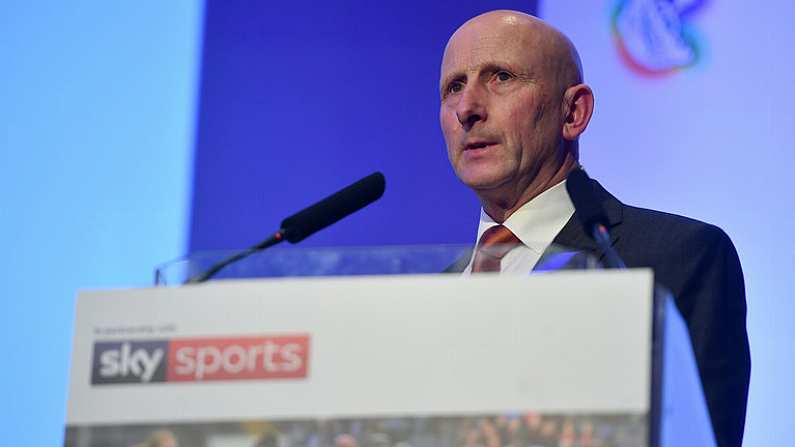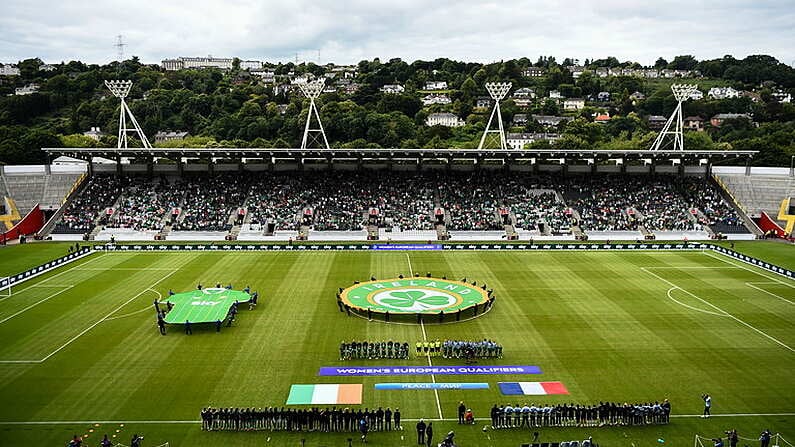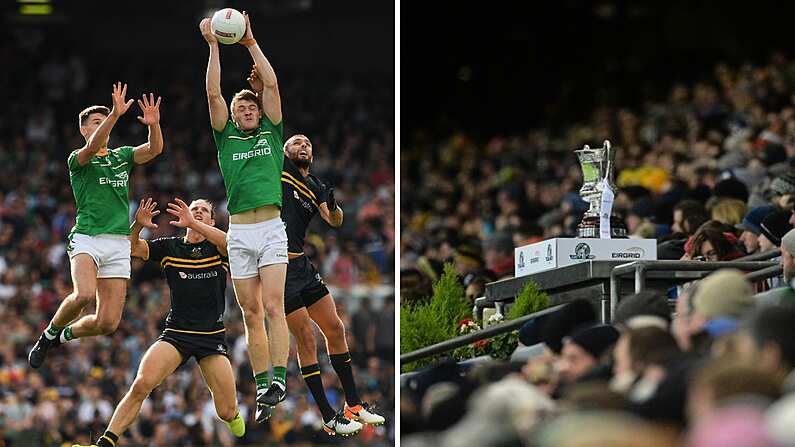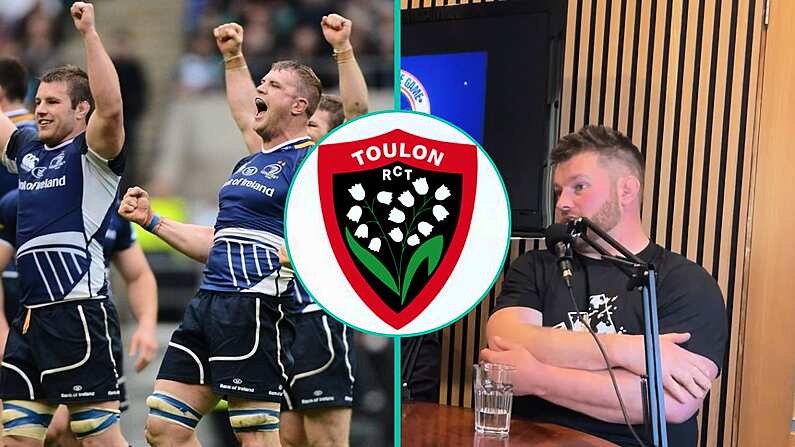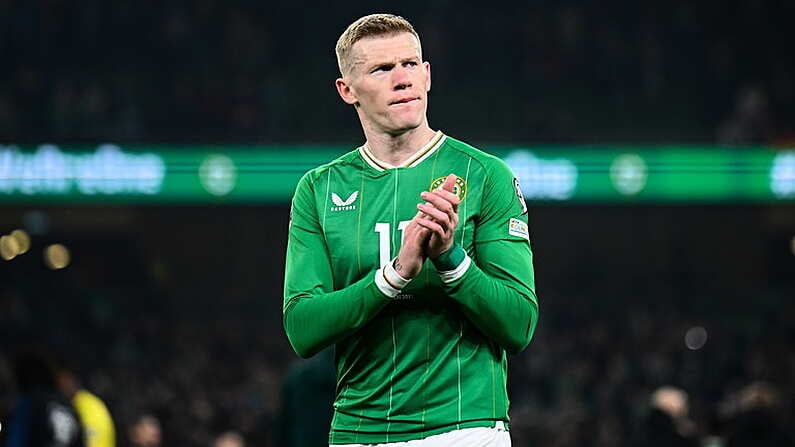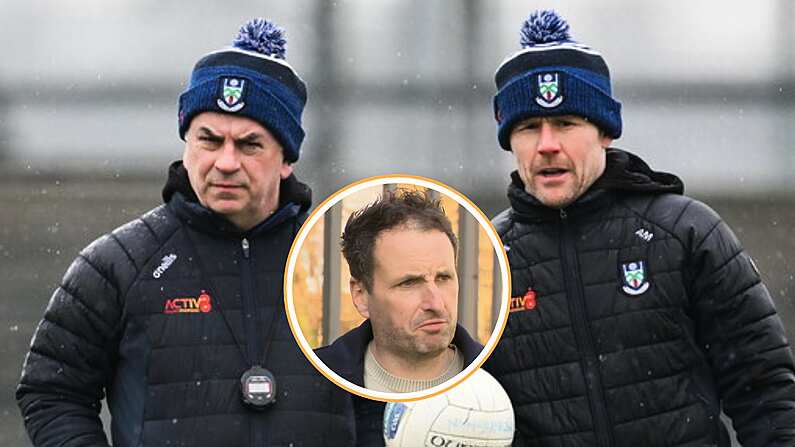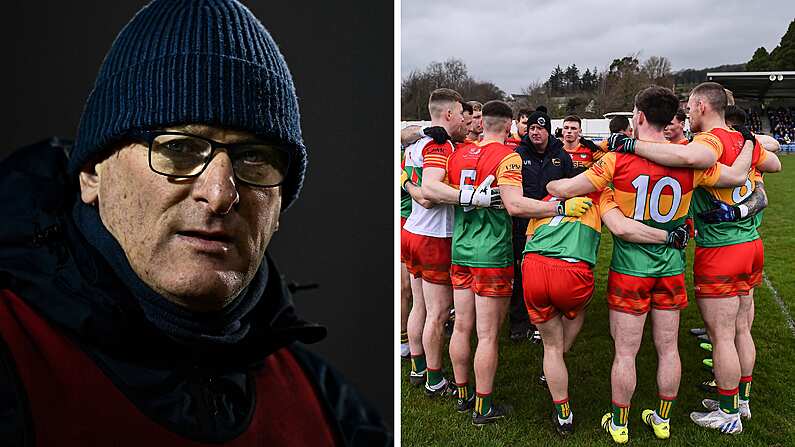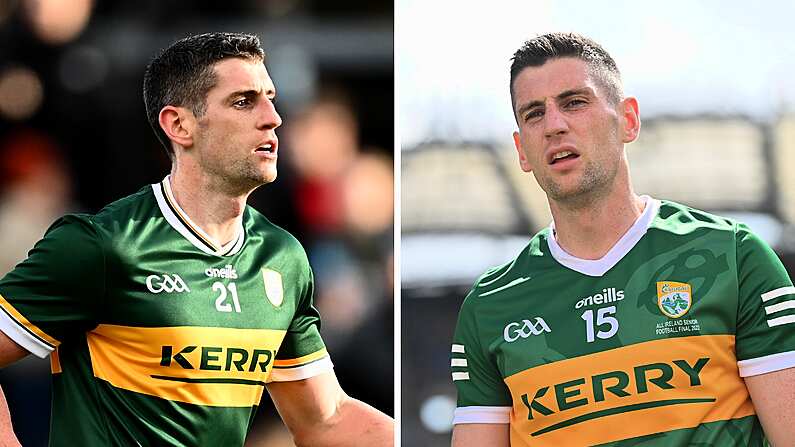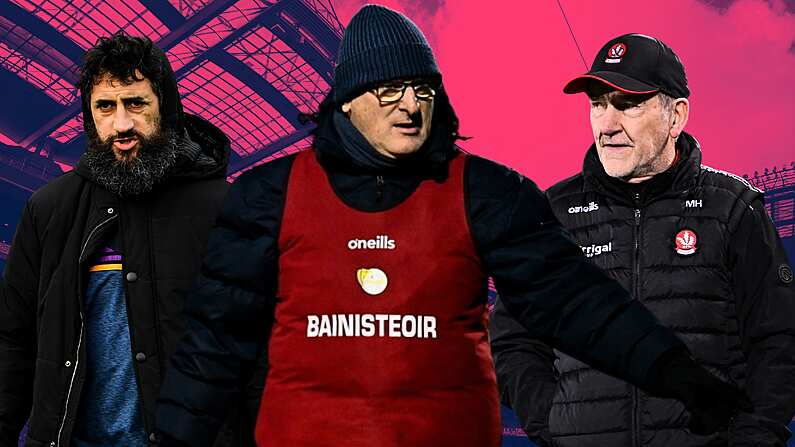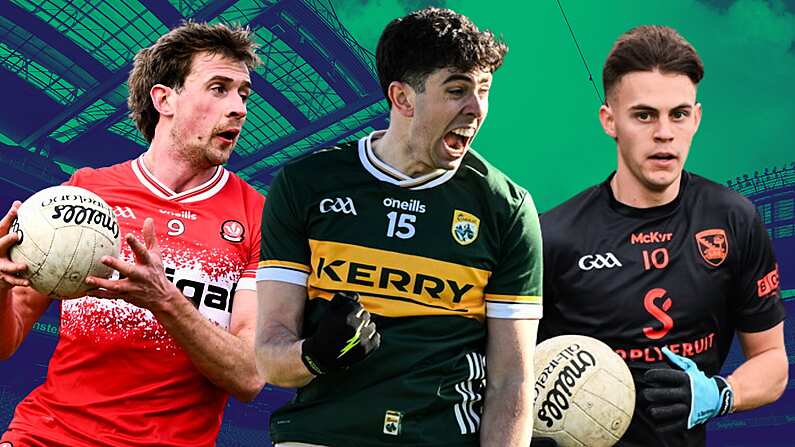"A game for the Gods", was how hurling was described on the first episode of The Game on RTE.
This might be a bit flattering to the Gods, as there are probably more of them in most religions than there are truly thriving hurling counties.
Hurling has rarely had a better few weeks of PR: a couple of classic semi-finals after a great championship given its high-definition context by a superb documentary series, all against the backdrop of football's tangled wails of existentialism.
And yet.
What the above has served to do is accentuate the extent to which the "game for the Gods" is on its knees in vast swathes across the country: there are 15 counties with fewer than ten adult hurling clubs; eight with less than five.
On last week's edition of the So-Called Weaker Podcast, we featured some diagnoses from those on the ground in these counties, which you can read here.
In summary: the dwindling of senior clubs in counties across the country; the lack of follow-on for enthusiastic youngsters; the daunting shadow of Gaelic football; the lack of media coverage.
Among the most vocal critics was Louth manager Phillip O'Brien, who is watching the clubs crumble both there and in his native Meath. "Croke Park should see this as a crisis. Don't let these clubs fold, because they will be gone forever".
To gauge Croke Park's opinion, on this week's show we spoke to the GAA's National Hurling Development Manager Martin Fogarty. To listen to the interview in full, subscribe on iTunes or search 'Balls.ie' wherever you get your podcasts.
First things first: does Fogarty agree that hurling is on its knees in many parts of the country?
That’s a true reflection of the reality. In the stronger counties is at a phenomenal level. Look at the last couple of weekends: the standard is mind-boggling. It’s not like that everywhere. Away from these diehard counties, you could pick 15 counties in Ireland with less than 10 adult hurling clubs.
If memory serves me well, we have eight counties with less than five. So if you are in a county with only three adult clubs, that presents its own problems.
That is the situation. To get a meaningful games programme is a major difficulty.
Fogarty gives a few reasons as to why there are so many counties with such few clubs. The relative plethora of equipment needed to play hurling as opposed to football is one obstacle, but Fogarty points to the most obvious: a lack of tradition. This, he says, contributes to a spin-off issue of some people lacking the confidence to coach the game.
It’s nothing to do with numbers. Look at Offaly and Laois. Small counties, but they play both games. In particular years they can be very good at both codes. It comes down to hurling being a difficult game to play.
In the early stages, if a person doesn’t have the right level of skill, they won’t stick at it. So hurling is difficult to play. The next thing then is the equipment. Those little things create obstacles. One of the biggest problems is the confidence of people to coach teams. If you have people who are not from a hurling background, they don’t have the confidence to coach the game. This is a myth.
Some of the great coaches I’d have met throughout the country never played the game. But they had interest and enthusiasm, and if you can provide a facility and have enthusiasm, the game can look after himself.
Fogarty says that the GAA have Games Development Officers working full-time in each county to try and "spread the gospel" on the ground, through primary school coaching, Cúl Camps, and blitzes. If the game is going to thrive, however, he says that clubs have to be maintained by a dedicated group of local volunteers.
Ultimately, you are hoping that volunteers will take it on to say ‘Right, let’s get a club going here’. That’s the biggest challenge. No organisation can just create people.
We have full-time people in each county, but that’s not the only answer. They can sow the seed, but you can’t have a full-time person come in, start a club and keep it going for 20 years.
Croke Park's aim, says Fogarty, is to ensure that every child in the country gets an opportunity to play hurling or camogie. For this there needs to be initial access through schools and clubs, and while the establishment of senior clubs is a long-term ambition, what to do in the medium-term? If you've spread the gospel to primary schools, how to avoid adolescent apostasy?
Giving players a meaningful series of games at club level is on Fogarty's priority list, and has recently expounded his view that counties should amalgamate to set-up competitive 12 to 20-team championships. The inaugural Táin Leagues, wherein clubs from across a host in counties in multiple provinces came together to play each other, are an example of how this might work. "It is a huge burden in terms of travel, but it shows the value of the people involved at the coal face. They are ready to get into cars, travel long distances to get games for their players. I take my hat off to those people", says Fogarty.
What of the shadow of Gaelic football? Does Fogarty see it as a competitor?
The GAA has the two games, along with handball and rounders. We are not a football organisation, nor are we a hurling organisation.
In the strong football counties, hurling is probably the Cinderella and vice versa. There probably is a little bit of education to be done there, that the codes can sit side by side fairly well and support each other. The tremendous eample is Slaughtneil: a tiny area not only playing the two games, but have become among the best in country at both.
That’s working out of a tiny population.
You have all sorts of challengers: players preferring one code to another, and unfortunately there are coaches that don’t want their players playing the other code. That’s a pity.
As for senior level, Fogarty hails the standard of the Ring, Rackard, and Meaghar Cups, given its participants' relative lack of games at club level. He also says that the fact they exist is a great thing, as it gives every county a real chance of winning silverware in Croke Park. There has, however, been issues with all of these competitions, along with the Joe McDonagh Cup. Having won the Ring Cup, Kildare were forced to play a promotion play-off against Antrim a week later, with both squads releasing a statement ahead of the game saying that it shouldn't have to be played.
The McDonagh Cup, meanwhile, frequently had its results ignored on The Sunday Game, received little TV coverage bar an offering from TG4 for the final round of games and, while the final was given the Croke Park treatment, it threw in 15 minutes after the Munster final. Fogarty points to the labyrinthine demands of the GAA's fixture list in defence.
To be fair about it, every effort is being made to promote these competitions. When you sit down to try and do it, it’s hard. If you take the Leinster and Munster hurling final, they were on the same day. It’s easy for me to say that’s a terrible pity - and from a personal point of view it was, as I’d have liked to have gone to both of them - but your hands are tied when it comes to fixtures.
There are problems there that can’t be easily solved. The McDonagh Cup was played as a curtain-raiser to the Leinster final, and that was huge. It gave it status and a big day.
There have been complaints that the Ring, Rackard and Meagher Cup finals are being played a little early. However, it’s not so simple. I’d love to see the Ring final as a curtain-raiser to the McCarthy final, but that may not be so simple. There are dual players on these teams and they might not be available later in the year. The aim is always to get those competitions on the highest stage possible.
I've heard of the possibility of playing them before All-Ireland semi-finals, and that is grand in theory but there are obstacles.
Trying to get a balance of fixtures across the codes is a huge challenge.
So to sit down and take one competition in isolation isn’t possible.
As for the frequent complaints regarding a lack of media coverage, Fogarty agrees.
Of course it is frustrating. But it is beyond our control. When you have the lower divisions, the broad interest isn’t there. That is the challenge and the problem. It does frustrate us but there isn’t much we can do bar suck it up.
I know exactly what you are saying. The Saturday of the Ring, Rackard/Meagher finals, I don’t think the results were on the news bulletin that evening. You can’t force the media to report on what you want them to report on.
What can you do is to keep on paddling up the river, and doing your best.
It's time for the Game of the Gods to start making some wider importance.
Listen to the full interview on the podcast.

